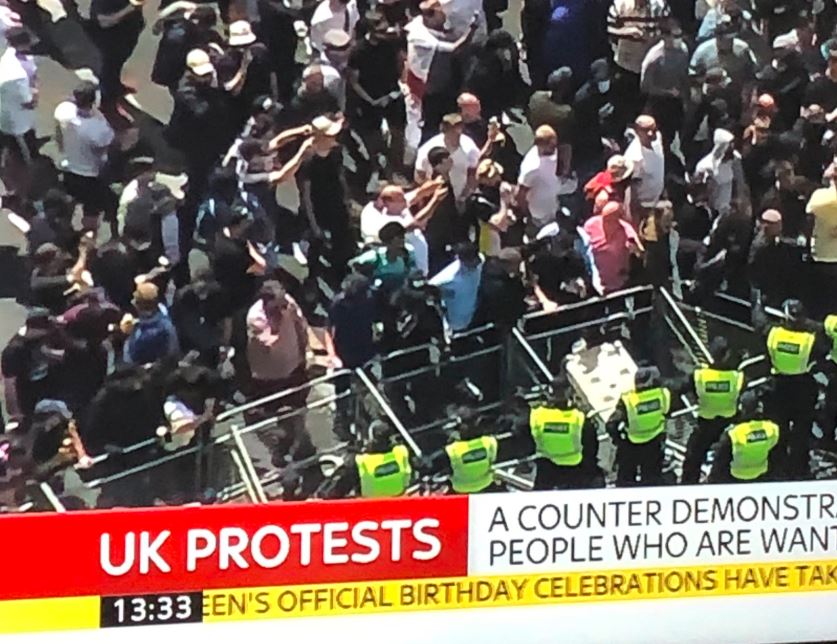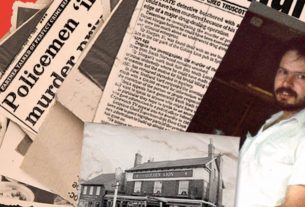The president of the Police Superintendents’ Association (PSA) has warned the UK is facing a “summer of discontent” after months of lockdown combine with a severe economic downturn, anti-racism protests, counter demonstrations by the far-right, and Brexit.
“There are so many issues where so many have opposing views that there’s a risk of a sustained level of agitation,” chief superintendent Paul Griffiths told the Independent.
Coronavirus laws around social distancing and lockdown rules makes gatherings of more than six people illegal but police estimate that more than 220,000 people in the UK have taken part in overwhelmingly peaceful demonstrations since the killing of George Floyd by US police on May 25.
‘Difficult economic times’ brings risks
Floyd’s death sparked global protests against police brutality and systemic racism and Griffiths said tensions in the UK are being heightened by “frustration” arising from measures put in place to combat the pandemic.
“There are many factors, but I do see a summer of discontent coming through,” the PSA president warned, pointing to the “really difficult economic times we are in” as another reason for caution.
“As the restrictions start easing, furlough opportunities start changing, and there’s a risk of people suffering economically. That can sometimes lead to protests, so there’s a lot going on in our society at the moment.”
Griffiths said tensions over Brexit could rise, as too “counter-narratives” fueling far-right demonstrations against the Black Lives Matter movement, adding: “There’s a real moment in time where this, along with social injustice issues and racial discrimination, could come together to create further problems.”
Clashes erupted when self proclaimed “statue protectors” descended on London last weekend to “preserve British heritage”, following protests the previous weekend that saw a statue to a slaver in Bristol toppled and dumped in a dock, and graffiti sprayed on the Churchill memorial in Whitehall.
Hundreds of protestors have been arrested and scores of police have been injured by violence while forces have faced criticism for not enforcing existing laws. Earlier this week the Police Federation of England and Wales called on home secretary Priti Patel to ban large gatherings and protests. The plea was knocked back by the government with the prime minister’s spokesman explaining that “ministers have no powers to initiate a ban on marches themselves.”
The Home Office said no formal requests for an outright ban on protests have been made by any police force but stressed that Patel and other ministers have “repeatedly” made clear “that these protests are illegal and put public health at risk” during the pandemic.
‘Better to engage and facilitate protest’ – PSA president
Griffiths explained the difficulty of policing the protests and “constantly balancing the fact that whatever action they could take has a counter and opposite reaction.”
He said a crowd’s “volatility” can change very quickly meaning the police response can itself “create problems”.
“People will want to voice their views, and if protests were banned they may do it anyway, so it’s better to engage and facilitate protest,” said Griffiths.
The UK’s record-breaking spell of dry and sunny weather this spring, the lockdown and its impact on jobs and leisure has probably bolstered the numbers taking part in protests said Griffiths, adding: “But I don’t want to distract from core issues of social justice, discrimination and bias that we need to address.”
The PSA president said: “Everybody has got a right to protest. It’s a fundamental part of our liberal democracy and it’s something that we try to facilitate through all our means as a police service.”




